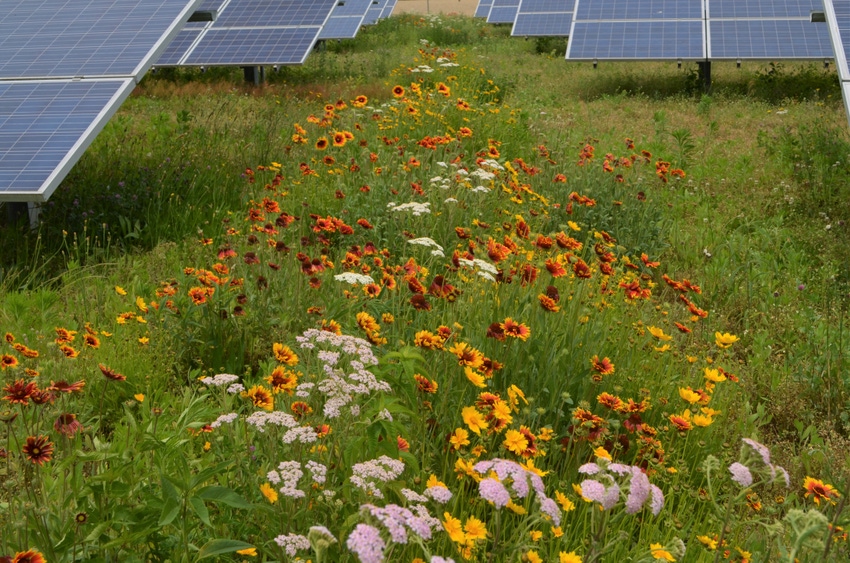Perdue Farms first poultry company to create pollinator habitat
Company plans to require pollinator-friendly ground cover at its future solar projects.
June 11, 2020

Perdue Farms recently announced that it has become the first poultry company in the U.S. to have pollinator-friendly ground cover at a company solar installation.
“Given Perdue Farms’ long-standing commitment to being good stewards, having the area at our five-acre solar field become a pollinator-friendly habitat was a no-brainer for us,” Perdue Farms vice president of sustainability Steve Levitsky said. “There is a growing body of research that shows pollinator habitat can help increase yields of a variety of fruits and vegetables, including soybeans -- one of the key components of a chicken’s diet -- so we wanted to do something that has the potential to benefit the environment as well as the farmers near our headquarters. Additionally, the land directly under solar panels has traditionally been filled with gravel or grass, and the cost to create and maintain a pollinator habitat is roughly the same, so there’s no financial barrier to incorporating pollinator-friendly ground cover into the facility.”
Levistky said Perdue Farms is planning to require pollinator-friendly ground cover at future company solar projects in order to provide even more benefits to the communities in which they are located.
“Asking for pollinator-friendly solar is a great way for electric utilities and corporations to ensure the solar energy they are buying does not result in negative trade-offs,” he said.
To be a pollinator-friendly solar project in the state of Maryland, a facility must meet or exceed the minimum score set forth in the Solar Site Pollinator Habitat Planning & Assessment scorecard. The assessment includes the percentage of the site with flowering plants, the utilization of native plants, the number of different plants used and the incorporation of blooming species through different seasons and more. Perdue Farms said it greatly exceeded the requirements for producing an “exceptional habitat.”
The company partnered with Fresh Energy, a catalyzer of pollinator-friendly solar, and the Bee & Butterfly Habitat Fund, whose mission is to increase and improve pollinator forage and habitat via its NextGen Habitat Project pollinator-focused seed mixes. The mixes support a high abundance and diversity of plants preferred by monarchs and native bees as well as managed honeybees and other pollinators.
The Perdue Farms habitat consists of 41 different types of flowers and grasses, including black-eyed Susan, Alsike clover, sawtooth sunflower, narrow-leaf milkweed, purple coneflower and more. Jim Passwaters, environmental vegetative buffers coordinator for the Delmarva Poultry Industry, prepared the site and planted the seeds. In total, more than 250,000 native and pollinator-friendly plants are growing on the solar array adjacent to the Perdue Farms headquarters.
In 2017, Perdue Farms was part of a coalition of agricultural, conservation and energy organizations that advocated for S.B. 1158, a bipartisan bill to establish a state-wide standard for pollinator-friendly solar in Maryland. The bill passed with unanimous support of the Maryland state legislature and was signed into law by Gov. Larry Hogan. This process led to Perdue Farms’ decision to replace the turfgrass at its solar facility with pollinator-friendly ground cover.
You May Also Like



